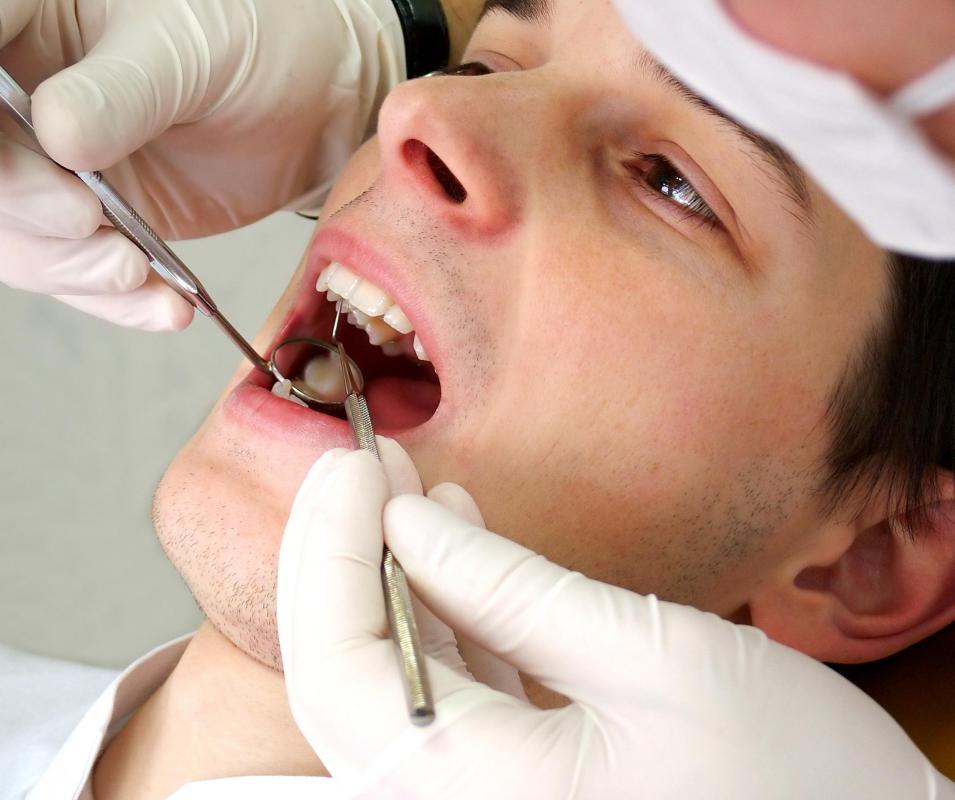At WiseGEEK, we're committed to delivering accurate, trustworthy information. Our expert-authored content is rigorously fact-checked and sourced from credible authorities. Discover how we uphold the highest standards in providing you with reliable knowledge.
In Dentistry, what is a Cavity?
In dentistry, a cavity is a hole that forms in a person’s tooth as a result of decay. Cavities, also called dental caries, form when sugars or starches and bacteria combine in the mouth. This combination results in the production of acid that is harsh enough to destroy a tooth’s hard enamel coating. Eventually, this destruction leads to a hole, which dentists call a cavity.
While the thought of bacteria in the mouth may be unappetizing, it is normal to find bacteria there. They are a constant presence on a person’s tongue and teeth as well as on the gums and even the lips. On the teeth, they are present in a sticky sort of film, which is referred to as plaque. The bacteria found here digest the starches and sugars that are present in a person’s mouth. An acid strong enough to destroy tooth enamel forms as a result of this feeding and eventually causes a cavity to develop.

It’s important to note that bacteria in the mouth don’t always lead to tooth decay. There are some types of mouth bacteria that do not cause cavities and some may even help to prevent them. Those that cause cavity formation, such as Streptococcus mutans and Actinomyces naeslundii, are in the minority. Unfortunately, however, their presence is enough to cause serious problems for a person’s mouth.

Interestingly, when bacteria act on sugars and starches in the mouth, they not only produce acid, but they also cause the mouth's pH level to drop. Once the pH level drops to a significant level, the acid begins its cavity forming attack on the teeth. Each time a person eats a meal that contains a sugar or starch, this acid is formed, the tooth’s pH level drops, and the tooth enamel is attacked.

At first, a cavity is very small and invades only the superficial surface of the tooth. In time, however, a cavity grows deeper and progresses until it reaches the tooth’s nerve. Superficial cavities are painless, and a person is typically unaware of them until he visits his dentist for an examination. Deeper cavities may be visible as darkened sections of tooth decay, particularly when they affect the teeth at the front of the mouth. More often, however, a patient discovers them when he develops a toothache.
Dentists can treat cavities, but the best way to handle them is through prevention. Most dental authorities recommend brushing at least twice each day and flossing once per day. People are usually advised to see a dentist every six months as well.
AS FEATURED ON:
AS FEATURED ON:














Discuss this Article
Post your comments